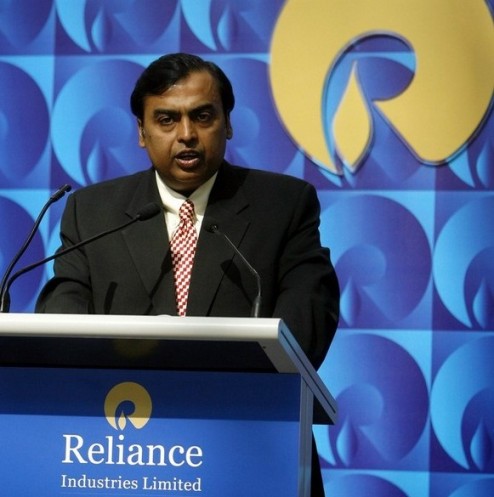RIL's misuse of oil ministry stand will be opposed: RNRL
 New Delhi, Nov 26 : The oil ministry stand on Krishna-Godavari gas will be opposed as and when Reliance Industries Ltd (RIL) misuses it to scuttle a binding contract, the counsel for Reliance Natural Resources Ltd (RNRL) told the Supreme Court Thursday.
New Delhi, Nov 26 : The oil ministry stand on Krishna-Godavari gas will be opposed as and when Reliance Industries Ltd (RIL) misuses it to scuttle a binding contract, the counsel for Reliance Natural Resources Ltd (RNRL) told the Supreme Court Thursday.
Even some honest officials in the oil ministry raised questions over the oil ministry's power to scuttle the marketing freedom of contractors appointed for the exploration of the country's oil assets, RNRL counsel Ram Jethmalani told the apex court.
His response came when the three-member bench hearing the Krishna-Godavari gas dispute asked if he was challenging the petroleum ministry's gas utilisation policy that has allocated the natural resource among various players and fixed a price.
"It's a democracy. The government has the powers to make policies, good or bad. I am not challenging their power to make a policy and enforce it," Jethmalani told the bench of Chief Justice K. G. Balakrishnan, Justice B. Sudershan Reddy and Justice P. Sathasivam.
"But I am challenging it to the extent that under the guise of a policy, they cannot frustrate the contract," he said referring to the gas supply pact between RNRL and RIL, which is the contractor for the Krishna-Godavari fields.
The three-member bench has been hearing the dispute over the supply of 28 million units of gas for 17 years at $2.34 per unit to Anil Ambani-led RNRL from the gas fields off the Andhra Pradesh coast, awarded to Mukesh Ambani's RIL.
The price, tenure and quantity were based on the 2005 family pact, but RIL subsequently said it could only sell the gas for $4.20 per unit, as this was the price, the company claimed, fixed by the government.
The Bombay High Court had earlier ruled in RNRL's favour.
Jethmalani said even an honest oil ministry official, Joint Secretary A. K. Jain, had raised the issue of government power to curtail marketing freedom of the contractor in an internal ministerial communication.
"Does the government (oil ministry) have the power to put in place a pricing policy and subject the contractor to this policy, especially with regard to the power sector," he said, while quoting from the letter to a ministerial group Aug 24, 2007.
The communique wondered if the gas utilization policy, while taking into account the production-sharing contract between the government and the contractor, could curb the marketing freedom, as provided for in the licensing policy.
"Will the imposition of the utilisation and pricing policy [not] violate the sanctity of the marketing- and pricing-freedom-related provisions of the new exploration licensing policy contracts?" Jethmalani said, quoting from the letter.
"Does the government have the power to announce and implement the gas utilization and pricing policy with retrospective effect from time to time after signing the production sharing contract?"
Harish Salve, counsel for RIL, strongly objected to Jethmalani quoting from the letter, saying it was a new document that cannot be introduced at this stage in the apex court.
But Jethmalani said he was only posing these questions to the oil ministry since he had earlier allowed it to become a party in this case.
"The ministry will have to be subjected to this obligation as it would have been in the company court had it become the party there -- and from where it had run away."
Jethmalani said the oil ministry cannot claim the right to scuttle binding contract in the garb of sovereignty.
"India is sovereign only in comity of nations. It has all the attributes of external sovereignty. There is no internal sovereignty, which can justify any action otherwise not permitted by the express terms of the contract," he said.
"This is denial of internal sovereignty vis-a-vis its citizens."(IANS)